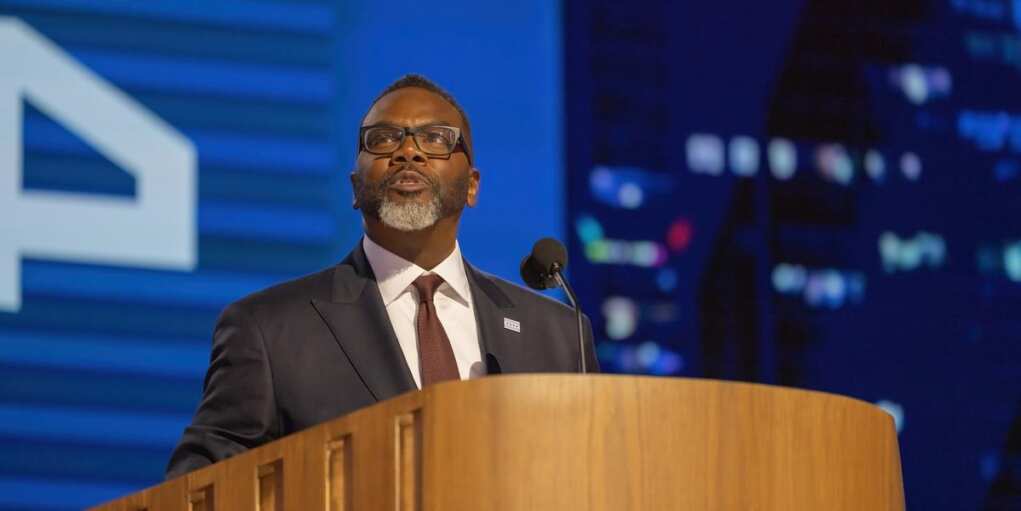Feds Probe Chicago Mayor Over Racial Hiring Practices

Chicago Mayor Brandon Johnson’s administration is under scrutiny after remarks he made about race-based hiring prompted a federal civil rights investigation.
The U.S. Department of Justice (DOJ) and the Equal Employment Opportunity Commission (EEOC) have launched a probe into whether Johnson violated anti-discrimination laws by prioritizing Black candidates for city jobs. The inquiry comes on the heels of the mayor’s appearance at Apostolic Church of God, where he celebrated his hiring record and declared that Black Americans were “the most generous people on the planet.”
Johnson, a progressive Democrat backed by teachers unions and left-wing groups, touted that key leadership positions in city government—deputy mayor, budget director, operations chief, and others—are now all held by Black men and women.
But that celebration of “diversity,” according to federal officials, might amount to racial discrimination.
In a letter to city officials, Trump-appointed Assistant Attorney General Harmeet Dhillon questioned whether the mayor’s racially charged hiring priorities extend beyond top-level appointments and into the broader ranks of city government. She cited concerns that lower-level hiring could be impacted by what she described as “openly preferential” decisions.
“If these kinds of hiring decisions are being made for top-level positions in your administration,” Dhillon wrote, “then it begs the question whether such decisions are also being made for lower-level positions.”
Johnson, attempting to quell the fallout, released data showing the racial breakdown of his administration: 34.3% Black, 30.5% White, 23.8% Hispanic, and 6.7% Asian. While the mayor insists this represents “equity in action,” critics say it looks more like exclusion.
One of the loudest voices challenging Johnson is 15th Ward Alderman Raymond Lopez, a frequent critic of the administration. “This isn’t a mayor for everyone,” Lopez said. “Many people throughout the city of Chicago have felt as if they have been excluded under this administration.”
The controversy underscores a growing debate around race-based policies in progressive city halls. While Johnson and his allies frame such hiring as “justice” and “inclusion,” legal experts warn it could run afoul of civil rights law, particularly if race becomes the deciding factor rather than one consideration among many.
Chicago has a long history of racial politics, but rarely has a mayor spoken so directly about using race as a hiring metric. Johnson’s remarks—made in a church setting to a largely Black congregation—were meant to highlight his commitment to representation. Instead, they may have triggered a legal firestorm.
The timing couldn’t be worse for Johnson. He’s already under pressure for soaring crime, fiscal strain, and growing frustration among residents outside his progressive base. Now, with the DOJ and EEOC digging into city employment records, the mayor may have to defend his administration’s actions in court as well as in public.
The probe is still in its early stages, and no charges have been filed. But for now, the message from federal officials is clear: even progressive ideals must play by the rules when it comes to equal employment law.

